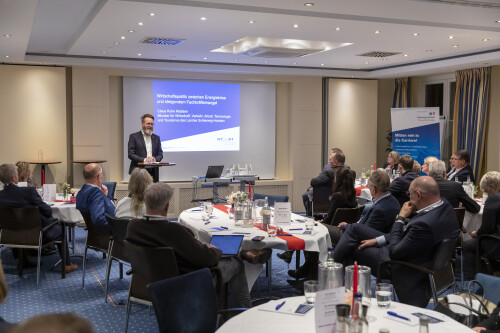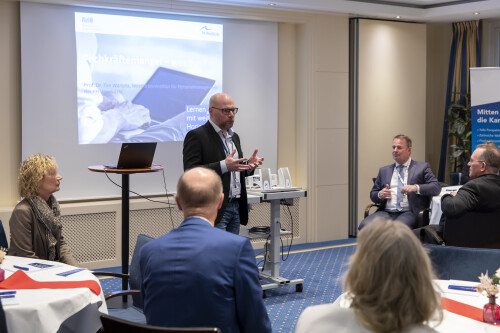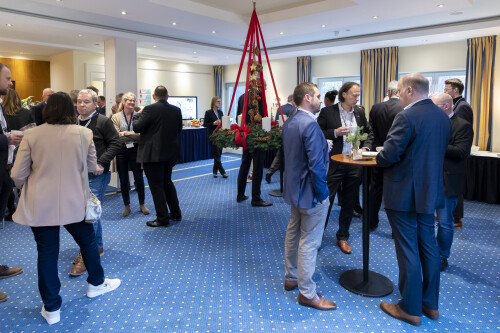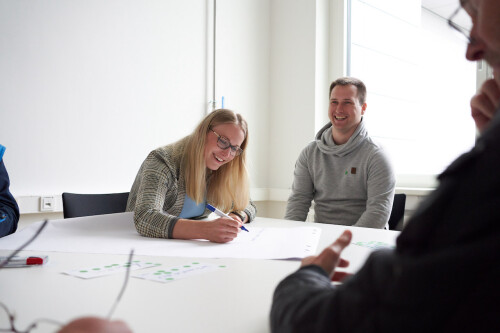Energy crisis and skilled workers in focus: Event with Schleswig-Holstein Minister of Economic Affairs Claus Ruhe Madsen
The WTSH had sent invitations to the event with the topic "Economic policy in the light of energy crisis and increasing demand for skilled workers". Among the speakers on the agenda was none other than the Minister of Economics, Transport, Labour, Technology and Tourism of the State of Schleswig-Holstein, Claus Ruhe Madsen.
With wit and commitment
In a professional and open manner, the Danish-born minister described his ideas for the economic development of the State, which focus on pragmatism and leaner bureaucracy.
It is important for me to take a half step instead of planning a whole step.
This is how Ruhe Madsen summed up his ambitions. The independent politician also offered a good deal of commitment, credibility and humour in his exchange with the guests: "You can see how important this exchange with you is to me by the fact that I’m not watching the Denmark vs. Australia match right now."
Making the best possible use of energy
On the subject of the energy crisis, the Minister emphasised that challenges are always a motor for innovation. For Schleswig-Holstein, with its strong wind power, photovoltaics and renewable energy technology sectors, he therefore saw a number of opportunities. Together with the participants, a constructive exchange on optimisation potentials and supply structures emerged.
Solutions for change
Many points confirmed the realisation that LEAB has its finger on the pulse with its solutions. Electrical systems in particular can provide the right answers to current issues surrounding the energy crisis. Increased efficiency, avoiding local emissions, effective use of renewable energies and smart charging technology are just a few aspects here. "We can offer the advice and the products to accompany sustainable changes," says Richard Westerkamp. "It was exciting to enter into discussions here. Formats like this help to network, find synergies and strengthen entrepreneurial engagement within the State."
Skilled workers are essential
The skilled labour situation on the labour market was the focus of the second part of the event. Prof. Dr Tim Warszta from the West Coast University of Applied Sciences gave an overview with his presentation "Status Quo of Skilled Worker Shortage and Options for Action".
Three clear principles
Companies can meet the challenges in different ways. For the professor at West Coast University of Applied Sciences, the focus is on a trio of principles:
Digitalisation / automation
Qualification - turning existing workers into specialists
Mobilisation - making the working world more attractive for women and international professionals
The participants' exchange also confirmed that in these times, many (especially younger) workers are concerned about job security and the meaningfulness of their work. Reliable employers who take care of the environment and society are in demand.
"We share these observations in our industry," confirms Richard Westerkamp. "That's why we are increasingly communicating how we work at LEAB and the reasons why. At the same time, we are actively shaping our team culture and taking stock of how we develop ourselves."
A successful day
Overall, the event offered fascinating insights into how other sectors and companies deal with changes and challenges. It also showed once again the number of innovative companies in Schleswig-Holstein, emphasises Richard Westerkamp, concluding:
We have particular challenges in our State, but also great opportunities. I would like to see politics and business take the steps outlined together and make use of the opportunities - because that is what we at LEAB are also fully committed to doing.




